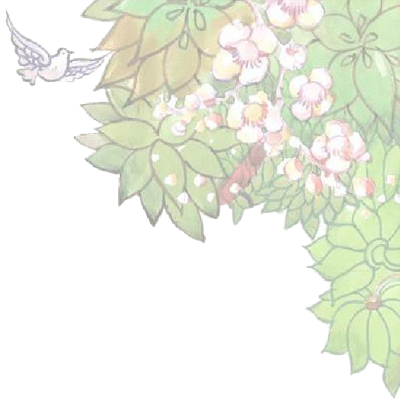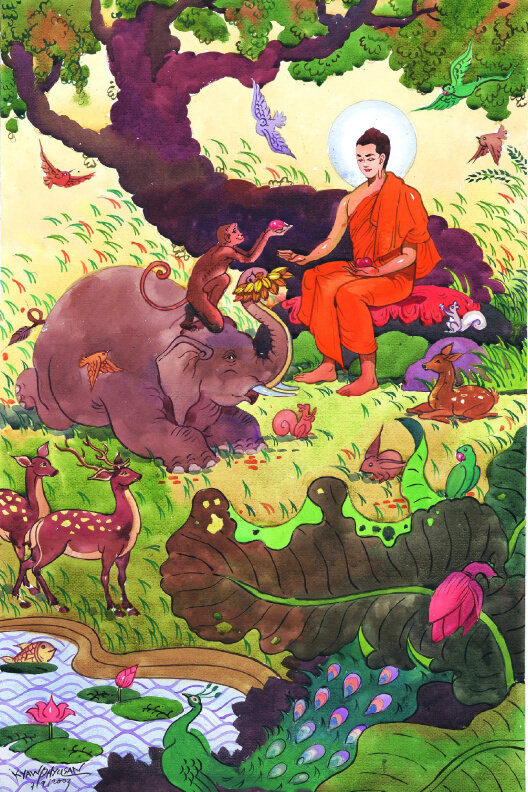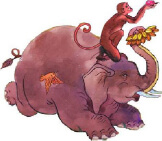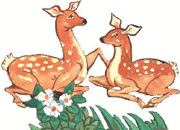43話 パーリレイヤカの森の象のように

第4部 ブッダをめぐる人々
第3章 ブッダの一日
43話 パーリレイヤカの森の象のように

世尊がヴァンサ国コーサンビーのゴーシタ僧院(美音精舎)に住まわれているあいだに、ささいな言い争いが起き、それが僧団(サンガ)の最初の大きな不和につながり、僧団の分裂を生みかねない争いとなった。
そのころ、ひとつの僧院には二人の比丘(ビック)がいて、ひとりは戒律の専門家(持律(ヴィナヤ)師(ダラ))、もうひとりは法話の専門家(持法(ダンマ)師(ダラ))だった。ある日、持法師が便所に行って、洗い残しの水を器に残した。代わって持律師が便所に行き、それをみつけた。(訳注:排便後、水と手やヘラで尻洗いして余った残りの水をさしている)
そこから出てきて、持法師に尋ねた。
「友よ、あなたは使い残しの水を器に残しましたね?」
「はい、そうしました」と、持法師はきまじめに答えると、持律師が文句をいった。
「さあて、友よ、それは戒律違反だ、とご存じなかったのですか?」
「いえ、知りませんでした、わが友よ」と、持法師が答えた。そこで、持律師が、こう説明した。
「友よ、使い残しのどんな量の水でも器に残すのは戒律違反なのです」
「それでは、もしわたしが戒律違反の罪なら、告白して、それを認めましょう」と、持法師はいった。
この答えに対して、持律師は、さらに説明した。
「友よ、しかし、あなたが故意にではなく、また、忘れていたからではなく、そうしたのなら、戒律違反ではありません」これをきいて、持法師は、自分は戒律違反ではない、と感じて、去って行った。しかしながら、持律師は、自分の弟子たちに、こう話した。
「あの持法師は、戒律違反を犯したとき、それを知らなかったのだ」
そして、かれらは、持法師の弟子たちに「あなたたちの先生は、自分が犯した戒律違反を知らなかったのだ」と、話したのである。そのことを弟子たちが先生に伝えると、持法師は、こういった。
「あの持律師は、はじめは、戒律違反ではありません、といっていたのに、いまや、戒律違反を犯している、と非難している。かれは嘘つきだ」そこで、持法師の弟子たちが持律師の弟子たちに「あなたたちの先生は嘘つきです」と、やり返したのであった。
それ以来、持律師は、自分の同輩の支持を得ようと画策し、さらに持法師に対しては、過失を過失として認めない罪をとがめ、持法師としての僧団の公式な行動を停止処分にした。かくして、いさかいが勃発したのである。
この言い争いを知って、世尊は両者の集まりに行き、いさかいを平和裡に収めるように、はたらきかけられた。
世尊は、かれら両方に、いさかいをやめるよう、多くのやりかたで勧め、僧団の不和の不都合と、仲よく和合して暮らす利益を説明された。しかしながら、かれらは世尊の勧めに従わなかった。いまや、いさかい、怒鳴りあい、言い争い、が僧団の真っただなかで起き、比丘たちは互いに矢を射るように罵りあった。
ある朝、世尊は着衣され、鉢と衣を手に持ち、托鉢のためにコンサンビーへ入られた。食事後、世尊は僧院へ戻られた。それから世尊は、居間を整頓され、鉢と衣を置かれ、比丘(ビック)たちの中央に立たれて、法話をなさった。その後、世尊は弟子の誰にもいわず、バグ尊者が滞在しているバーラカローナカーラ村へ向かわれた。世尊は尊者を教え導き、鼓舞し、勇気づけ、遠離の独り暮らしの大切さと、その利益を諭された。そうされてから世尊は座を立たれ、アヌルッダ尊者、ナンディア尊者、キンビラ尊者が住んでいる東方竹林(パーチーナヴァンサダーヤ)へ行かれた。世尊はかれらを教え導き、鼓舞し、勇気づけ、平和裡に和合して暮らすことの大切さを諭された。それからさらに世尊は、パーリレイヤカ村に到着するまで旅を続けられ、ラッキタ密林(ヴァナサンダ)の賢沙羅(バッダサーラ)というめでたい名の樹木の根もとに滞在された。
世尊は、十回目の雨安居をラッキタ密林で過ごされた。その静修の期間中、そこにひとりで滞在されたのだが、それは、次のような考えが世尊に浮かんだからである。
(このところ、不快な思いでわたしは生きていた。コーサンビーの比丘たちのいさかい、怒鳴りあい、言い争いが、僧団の真っただなかであり、わたしは煩わされた。さていま、わたしはひとりだ。ほかに誰もいない。かれらのすべてから離れて、気楽に、快適に、生きている)
そのころ、牙のある象がいた。象の群れのリーダーで、群れには若い雄の象、雌の象、仔象、乳飲みの幼い象がいた。その牙のある象は、群れのほかの象に煩わされていた。柔らかい先っぽがない草を食べなければならなかった。木々から大枝、小枝を曲げおろしてやっても、それらはすべてほかの象が食べるのである。水もまた、汚れた水を飲まなければならなかった。それに加えて、水浴び場から出てきたとき、雌象がかれの身体に、ドンとぶつかって行くのだ。こうしたことすべてを考えて、こう思った。
(群れから離れて、ひとりで生きては、なぜ、いけないのだろうか?)
こう考えて、牙のある象は群れを離れ、パーリレイヤカ村のラッキタ密林にやってきたのである。
この象は、それからはパーリレイヤカ象として知られるのだが、世尊とは賢沙羅(バッダサーラ)樹の根もとで、偶然めぐりあった。そこに、静かに、安らかなたたずまいで坐る世尊を見て、ちょうど一千の壺の冷たい水で深い苦悩が癒やされた男のように、パーリレイヤカ象はおとなしくなった。それからこの先、パーリレイヤカ象は世尊に献身的に奉仕した。賢沙羅樹や世尊が住まわれている小屋の周辺の地面を小枝で清掃することを日課とした。落ち葉や予想外のごみを片づけて、きれいにしたのである。世尊の顔や身体を洗うための水を運び、飲み水も用意した。また、さまざまの甘くおいしい果物を持ってきて、世尊に献げた。
世尊が村へ托鉢で入るときは、パーリレイヤカ象が世尊の鉢と衣を自分の頭の上に乗せて、村のはずれまで持って行き、そこで世尊が鉢と衣を手にされ、ひとりで村へ入られるのであった。パーリレイヤカ象は村はずれのまさにその場所で、世尊が帰ってこられるまで待つのである。世尊が帰ってこられると、世尊の鉢と衣を自分の頭の上にまた乗せて、森の住まいまで戻るのだ。世尊が托鉢食を口にされるときは、パーリレイヤカ象は世尊の脇に立ち、小枝であおいで風を送った。夜になると、大きな棒を鼻で持ち、周囲を巡回して、ほかの動物たちがやってくる危険を防いだ。このようにして世尊は、パーリレイヤカ象の奉仕を受けつつ、ラッキタ密林で三か月間の雨安居を過ごされた。
そのころ、パーリレイヤカ象が日々の奉仕を精力的にやっているのを見て、一匹の猿が触発され、こんなふうに思った。
(おれも世尊に、何か功徳になることをしよう)
ある日、その猿があたりをうろついているあいだに、ハチのいないハチの巣が付いた木の枝をみつけた。猿は枝を折って、ていねいにハチの玉子を取り除いた。一枚のプランテーン(訳注:熱帯産バショウ科の多年草で、果実は料理用バナナ)の葉の上に乗せて世尊のもとへ持って行き、それを献げた。世尊が受け取って食べられたのを見て、猿はたいへん喜んだ。有頂天になって踊り、木から木へ跳びはねた。ところが不運にもつかんでいた枝がポキンと折れ、切り株の上に転落し、突き刺さって死んだ。しかしながら猿の心は世尊に捧げられていたので三十三(ターヴァティンサ)天に生まれ変わり、猿の神(デーヴァ マッカタ)として知られた。
雨安居が終わったときに、アナータピンディカ長者、ヴィサーカー信女らサーヴァッティ(舎衛城)の住人たちは、アーナンダ尊者へ、こんなメッセージを届けた。
「尊者さま、世尊におめみえできます機会をぜひ、おつくりくださるよう、お助けくださいませ!」
五百人の比丘たちもまた、世尊の説法を聴くためにアーナンダ尊者のもとへやってきた。かれらは多くの別々の場所で雨安居を過ごしていたのである。
それから、アーナンダ尊者は、五百人の比丘たちとともにパーリレイヤカ村へ行った。ラッキタ密林のはずれに到着して、アーナンダ尊者は五百人の比丘たちに、ここでとどまるように、と求めた。遠離のうちに過ごされている世尊と会うのに、このような大人数はふさわしくない、と考えたのである。しかし、アーナンダ尊者が森にひとりで入ってきたとき、パーリレイヤカ象は尊者を敵とまちがえ、鼻で棒を持って、アーナンダ尊者に向かって突進してきた。だが、世尊は象を止めて、こういわれた。
「立ち去れ、パーリレイヤカよ、立ち去れ! じゃまをしてはならぬ! かれは、わたしの侍者である!」
そこで、パーリレイヤカ象は棒を落とし、アーナンダ尊者に、鉢と衣を取って預かりたい、という意向を身ぶりで示したが、尊者は手渡すのを拒んだ。
世尊に礼拝後、アーナンダ尊者は脇に坐った。世尊は、ひとりで来たのか、と尋ねた。五百人の比丘たちとともに来た、と知って、世尊は、連れてくるように、と求めた。アーナンダ尊者と五百人の比丘たちは、森の動物たちが人間より、いかにみごとに世尊のお世話をしているか、がわかって、驚いた。世尊はかれらと親しくあいさつを交わした後、この出来事を説き明かす、胸に響く説法をされ、森の動物たちの奉仕が、森での生活の支えとなっていることに満足している、と表明された。そして、善友をもち、賢者と親しみ、不道徳で不名誉な行いを避けることの大切さ、も説かれて、こういわれた。
“もし、賢明で、思慮深く、行い正しい生き方の人を友に得て、
いっしょに歩むことができるなら、
あらゆる艱難辛苦を克服し、
心に喜びを抱き、気づきをそなえ、いっしょに歩め”
・・・ (ダンマパダ328)
“もし、賢明で、思慮深く、行い正しい生き方の人を友に得て、
いっしょに歩むことができないのなら、
国を捨てる国王のように、
また、森の中の象のように、ひとり歩め” ・・・ (ダンマパダ329)
“ひとりで歩むほうがよい。
愚か者に、友の資格はない。
ひとり歩め。諸悪をなさず、
こだわりなく、平然と、森の中の象のように” ・・・ (ダンマパダ330)
そして説法の終わりには五百人の比丘たちすべてが阿羅漢に達した。それから、アーナンダ尊者が、サーヴァッティのすべての住人たちの願いとして、世尊がかれらのためにサーヴァッティに滞在してくださいますように、という招待の願いを伝えた。
アナータピンディカ長者やヴィサーカー信女、サーヴァッティの住人たちの招待を受けいれた後、世尊はアーナンダ尊者と五百人の比丘たちをともなって、サーヴァッティへ向けて、遊行の旅に出発された。パーリレイヤカ象はさまざまの種類の果物を旅立った全員に配った。パーリレイヤカ村のはずれまで来て、世尊は象に、最後の別れの言葉をかけられた。
「ここにとどまるのが、そなたにはよい。人間の住むところは、そなたの棲みかではないし、危険だ!」
象は、嘆きながらそこに立っていた。世尊が歩いて行かれて、道を曲がって見えなくなるまで見つづけた。世尊の姿が見えなくなったとき、悲しみに打ちひしがれ、傷心のために亡くなった。しかし世尊への奉仕という偉大な功徳によってパーリレイヤカ象は三十三(ターヴァティンサ)天に生まれ変わり、パーリレイヤカ神として知られたのであった。
一方、コーサンビーで、在家の篤信者がゴーシタ僧院の比丘たちに、長い間、世尊の姿を見ないことについて尋ね、比丘たちが互いにいさかいを起こし、世尊からの諭しを受け入れなかったので、世尊がパーリレイヤカの森に行ってしまわれた、と知ったのである。コーサンビーの在家の篤信者らは、比丘たちにたいへん失望して、敬意を払って比丘たちに応対するのはやめよう、と合意した。
この結果、コーサンビーの比丘たちは、雨安居を食べ物の欠乏で飢える、というみじめな状態で送らねばならなかった。在家の篤信者らのこうした処遇によって、比丘たちは日に日に衰弱していき、自分たちの過ちをさとった。かれらは過誤を告白し、互いに謝った。かれらはまた、在家の篤信者らにも尊師に不服従であったことを謝罪し、以前のように処遇してくれるように、と求めた。しかしながら、在家の篤信者らは、世尊に謝罪した後にのみ、まともに処遇します、と応じた。コーサンビーの比丘たちが、世尊がサーヴァッティに来られた、ときいたとき、世尊の赦しを得ていさかいを収めるために、かれらはサーヴァッティへ向かったのであった。
※ 画像やテキストの無断使用はご遠慮ください。/ All rights reserved.

Episode 43 RAINS-RESIDENCE AT Pārileyyaka
While the Blessed One was residing at the Ghosita Monastery in Kosambī, there arose a little dispute that led to the first great quarrel which threatened to produce a schism in the Saṁgha.
At that time, there were two bhikkhus in one monastery, one an expert in the Discipline (Vinayadhara) and the other a teacher of Discourses (Dhammadhara). One day, the teacher of Discourses went to the latrine and left some unused washing water in a vessel. In turn, the master of the Discipline went in and found it there. He came out and asked the teacher of Discourses: “Friend, did you leave some amount of unused water in that vessel?” The teacher of Discourses sincerely replied:
“Yes, I did.” The master of the Discipline complained: “Well, friend, don’t you know it was an offence?” The teacher of Discourses replied: “No, I don’t, my friend.” Then the master of the Discipline explained: “Friend, to leave any amount of water in the vessel is an offence.” The teacher of Discourses said: “Then, if I am guilty of an offence, I will acknowledge it by confessing.” Upon this, the master of the Discipline explained: “Friend, but if you did it unintentionally and out of forgetfulness, there was no offence.”
On hearing this, the teacher of Discourses perceived that he had not committed an offence and went away. However, the master of the Discipline told his disciples: “This teacher of Discourses does not know when he has committed an offence.” And they told the disciples of the bhikkhu—the teacher versed in Discourses: “Your preceptor does not know the offence that he has committed.” When they told their
preceptor of this news, the teacher of Discourses said: “This bhikkhu versed in the Discipline said first that I was not guilty of that offence, and now he accused me of being guilty of that offence. He has told a lie.” They told back the disciples of the bhikkhu versed in the Discipline: “Your preceptor is a liar.” Thereafter, the master of the Discipline managed to obtain support of his own associates and charged the teacher of Discourses with the offence of not seeing the fault as a fault and suspended the teacher of Discourses with a formal act of the Saṁgha. Thus a quarrel erupted.
Having learnt of this dispute, the Blessed One went to both parties to settle the quarrel peacefully. He advised them in many ways to discontinue quarrelling and explained the disadvantages of a schism in the Saṁgha and the benefits of living in harmony. However, they did not heed the Blessed One’s advice. Now quarrels, brawls, and disputes broke out in the midst of the Saṁgha, and bhikkhus abused each other
with verbal arrows.
One morning, having dressed, the Blessed One took His alms-bowl and robe, and entered Kosambī for alms-food. After meal, He returned to the monastery. Then, He set His resting place in order and took up His bowl and robe; standing in the midst of bhikkhus, He gave a Dhamma exposition. After that, He proceeded all alone—without telling any of His disciples—to the village of Bālakaloṇakāra, where the Venerable
Bhagu was staying. The Blessed One instructed, roused, encouraged, and advised him on the importance and benefits of living in solitude. Having done so, He rose from His seat and left for the Eastern Bamboo Grove (Pācīnavaṁsadāya), where lived the Venerable Anuruddha, the Venerable Nandiya, and the Venerable Kimbila. The Blessed One instructed, roused, encouraged, and advised them on the importance of living peacefully and harmoniously. Then, He continued His journey until He reached the Pārileyyaka Village, and stayed in the Rakkhita Forest (Rakkhitavanasaṇḍa), at the foot of an auspicious sāla tree named Bhaddasāla.
The Blessed One spent his tenth rains-residence in the Rakkhita Forest, and while staying alone in retreat there such a thought occurred to the Blessed One: “Formerly I lived in discomfort, pestered by those Kosambī bhikkhus who quarrel, brawl and dispute in the midst of the Saṁgha. Now, I am alone and companionless, living at ease and with comfort, away from all of them.”
At that time, there was a certain tusker elephant, leader of a herd, living with young male elephants, cow elephants, calf elephants, and sucking elephants. He had been living pestered by them. He had to eat grass without tender tips; all the branches and twigs brought down from trees by him were eaten up by other elephants. He also had to drink dirty water. Besides, when he came out of the bathing place, the cow elephants went passed by jostling his body. He had considered all this and he thought: “Why should I not live alone, withdrawn from the crowd?” So thinking, he left the herd and went to Pārileyyaka, to the Rakkhita Forest.
The elephant—then known as the Pārileyyaka elephant—happened to come to the Blessed One, who was at the foot of the auspicious sāla tree. On seeing the Blessed One seated there—serene and peaceful in appearance—the Pārileyyaka elephant became calm just like a man whose grief was allayed by cool water from a thousand pots. From then onwards, he attended to the Blessed One devotedly. He performed his
daily routine by sweeping the ground—around the bhaddasāla tree and the hut where the Blessed One stayed—with a twig so that it might be cleared of fallen old leaves and other unexpected things; he would bring water to the Blessed One for washing face, water for His bathing, and even preparing drinking water. He also would bring a
variety of sweet and delicious fruits and offer them to the Blessed One.
When the Blessed One entered the village for alms-food, thePārileyyaka elephant would carry the Blessed One’s bowl and robe on his head, up to the outskirts of the village where the Blessed One would take His alms-bowl and robe from him and entered the village alone. He would wait at that very spot till the Blessed One’s return.
He would then receive the Blessed One’s alms-bowl and robe, put them on his head, and return to the forest dwelling. When the Blessed One partook of His alms-food, the Pārileyyaka elephant would stand beside Him and fan Him with a twig. At night, he would hold a big stick with his trunk and roam around to ward off danger that might come from other animals. Thus, the Blessed One spent the rains-residence for
three months in the Rakkhita Forest, receiving service from the Pārileyyaka elephant.
At that time, a monkey became inspired on seeing the daily duties performed energetically by the Pārileyyaka elephant. He thought to himself: “I shall also do some meritorious deed towards the Blessed One.” One day, while roaming about, he found a tree-branch with a honeycomb devoid of bees. He broke the branch and gently removed the bee-eggs. He placed them on a plantain leaf, brought and offered it to
the Blessed One. When the monkey saw the Blessed One receiving his offering and ate it, he was so elated with joy. He danced and jumped from one tree branch to another. Unfortunately, the branch he was holding on to broke off and he fell on a tree stump. He died with his body pierced by the stump. However, as his mind was devoted to the
Blessed One, he was reborn in the Tāvatiṁsa Heaven and was known as Deva Makkaṭa.
When the rains-residence was over, the millionaire Anāthapiṇḍika, Visākhā, and other residents of Sāvatthi sent their message to the Venerable Ānanda, saying: “Venerable sir, kindly help us arrange for an opportunity to behold the Blessed One!” There also came five hundred bhikkhus—who had been staying at many places of
rains-residence—to the Venerable Ānanda for the purpose of listening to the Dhamma from the Blessed One.
Then, the Venerable Ānanda, together with the five hundred bhikkhus, went to the Pārileyyaka Village. Arriving at the edge of the forest, the Venerable Ānanda asked the five hundred bhikkhus to stop there, thinking that it was not suitable to meet the Blessed One with such a big group while He was staying in solitude. But when the Venerable Ānanda entered the forest alone, the Pārileyyaka elephant mistook him as an enemy. The elephant rushed up to the Venerable Ānanda by
carrying a stick with his trunk, but the Blessed One stopped him, saying: “Go away, Pārileyyaka, go away! Do not block his way! He is my attendant!” The Pārileyyaka elephant then dropped the stick and made a gesture to express his desire to take the Venerable Ānanda’s bowl and robe. However, the Venerable Ānanda refused to hand them over to the elephant.
After paying obeisance to the Blessed One, the Venerable Ānanda sat down at one side. The Blessed One asked whether he came alone. And knowing that he came accompanied by five hundreds bhikkhus, the Blessed One asked him to fetch them. The Venerable Ānanda and the bhikkhus were amazed to see how well the animals could assist the Blessed One better than human beings. After the Blessed One had
exchanged friendly greetings with them, He gave an inspiring sermon illustrating this incident, and expressed His gratitude for the services of the animals that assisted Him in the forest and the importance of having good companions, associating with wise people, and avoiding unlawful and disgraceful acts. And at the end of the
sermon, all the five hundreds bhikkhus attained Arahantship. Then, the Venerable Ānanda conveyed the request of all the residents of Sāvatthi and invited the Blessed One to stay there on their behalf.
After accepting the invitation of Anāthapiṇḍika, Visākhā and the residents of Sāvatthi, the Blessed One set out to wander by stages to Sāvatthi, accompanied by the Venerable Ānanda and the five hundreds bhikkhus. Pārileyyaka provided them all with various kinds of fruits. On reaching the outskirts of the Pārileyyaka Village, the Blessed One addressed His last words to the elephant: “It is better for you to stay here; the human abode is not your habitat, and it is dangerous!” The elephant stood lamenting there; he watched the Blessed One going away until He disappeared round the way. When he lost sight of the Blessed One, he was grief-stricken and died of a broken heart. But due to his great meritorious deeds to the Blessed One, he was reborn in the Tāvatiṁsa Heaven and was known as Deva Pārileyyaka.
Meanwhile in Kosambī, the lay devotees inquired the bhikkhus in the Ghosita Monastery as they did not see the Blessed One for a long time; they found that the Blessed One had gone to the Pārileyyaka Forest because the bhikkhus were quarrelling with each other and did not want to receive advice from the Blessed One. The lay devotees of Kosambī were much disappointed in them and agreed among themselves not to treat the bhikkhus with respect.
As a result, the bhikkhus of Kosambī had to pass the rains-residence in misery with scarcity of the food and starvation. Being treated by the lay devotees in this way, they became emaciated day by day and realised their mistake. They then confessed their fault and apologised to one another. They also apologised to the lay devotees for their being disobedient to the Master and asked them to treat the bhikkhus as before. However, the lay devotees would treat them properly only after they had asked for an apology from the Blessed One. When the Kosambī bhikkhus heard that the Blessed One has come to Sāvatthi, they headed there to ask for his pardon and to settle their dispute.The English version is currently being prepared.
※ 画像やテキスト の無断使用はご遠慮ください。/ All rights reserved.
アシン・クサラダンマ長老
1966年11月21日、インドネシア中部のジャワ州テマングン生まれ。中国系インドネシア人。テマングンは近くに3000メートル級の山々が聳え、山々に囲まれた小さな町。世界遺産のボロブドゥール寺院やディエン高原など観光地にも2,3時間で行ける比較的涼しい土地という。インドネシア・バンドゥンのパラヤンガン大学経済学部(経営学専攻)卒業後、首都ジャカルタのプラセトエイヤ・モレヤ経済ビジネス・スクールで財政学を修め、修士号を取得して卒業後、2年弱、民間企業勤務。1998年インドネシア・テーラワーダ(上座)仏教サンガで沙弥出家し、見習い僧に。詳しく見る
奥田 昭則
1949年徳島県生まれ。日本テーラワーダ仏教協会会員。東京大学仏文科卒。毎日新聞記者として奈良、広島、神戸の各支局、大阪本社の社会部、学芸部、神戸支局編集委員などを経て大阪本社編集局編集委員。1982年の1年間米国の地方紙で研修遊学。2017年ミャンマーに渡り、比丘出家。詳しく見る

※ 画像やテキストの無断使用はご遠慮ください。
All rights reserved.

